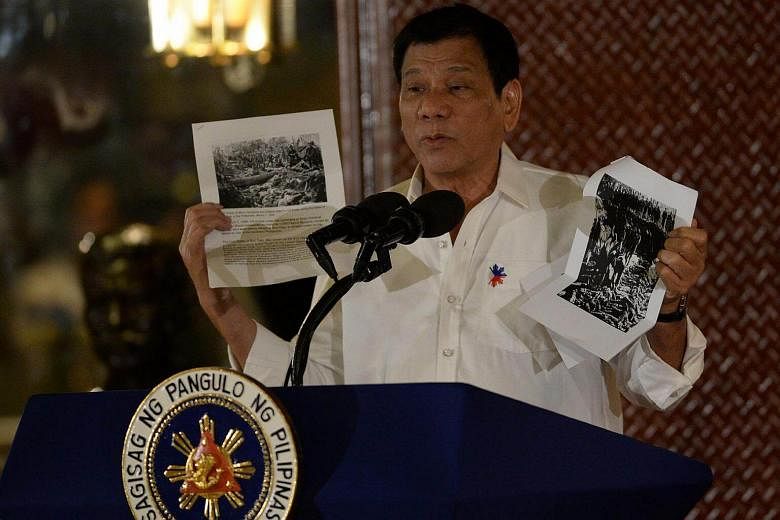In an ideal world, sovereign nations would maintain the unchallenged authority to implement any policy without other countries attempting to intervene, not even the superpowers on which so much depends in our interconnected world.
In reality, however, no national leader has the freedom to pursue policies deemed inappropriate by the international community.
Philippines President Rodrigo Duterte was reminded of this at last week's Asean summit in Vientiane.
Using his characteristic gutter language, he had earlier warned his United States counterpart, Barack Obama - also attending the summit - that he would brook no lecturing about his "war on drugs", which has seen nearly 3,000 users and dealers summarily executed in the two months he's been in office.
Obama promptly cancelled an appointment to meet Duterte privately on the sidelines of the Asean session.
Gone abruptly was the chance to get the US more firmly on Manila's side over the territorial dispute in the South China Sea. Presumably the presidential aides did some behind-the-scenes scrambling, though, and their bosses had a brief encounter after all.
Both Obama, whose term of office ends in January, and Duterte, who can't afford to anger such a powerful ally and trading partner, understood the importance of patching up their squabble.
"If we're working with a country - whether it's on anti-terrorism, whether it's on going after drug traffickers," Obama told reporters after they met, "as despicable as these networks may be, as much damage as they do, it is important from our perspective to make sure that we do it the right way.
Because the consequences of when you do it the wrong way is innocent people get hurt and you have a whole bunch of unintended consequences that don't solve the problem."
Thus Obama won the duel. Duterte's brashness achieved nothing.
Words that might have reinforced his reputation as a maverick and a tough merely caused embarrassment for his government and countrymen. Stubborn to the end, he only made matters worse by lying to Filipino expatriates in Indonesia, after the Vientiane summit, that in fact he'd never called Obama a "son of a whore" as charged.
President Duterte is going to have to adjust his style and rein in his rhetoric if he wants his country to maintain good relations with others.
Better still, he should change course in his efforts to end the drug problem. As Obama pointed out, narcotics are a major problem for all nations, but efforts to suppress them must be conducted in accordance with democratic standards and the rule of law.
Nowhere else in the world apart from in the Philippines, he might have added, are the police and vigilantes encouraged by the state to shoot dead people simply suspected of involvement.
Under democracy - still the best form of government despite totalitarianism's creeping revival - suspects are considered innocent until proven guilty in court. If convicted, the law of the land prescribes the punishment or more humane treatment. Street justice, fraught with the possibility of haste and error, has no place in a civilised nation.
As for the conflict over rival claims to territory in the South China Sea, which is of crucial importance not just to Philippine sovereignty but also to the stability of the whole region, Manila might gain credit in Beijing by moving outside Washington's sphere of influence.
But American support in this matter is a bargaining chip that Duterte cannot afford to lose. Smart leaders don't limit their options in striking global deals.
Duterte's blunder at his first international summit needn't become a syndrome. He only has to reconsider policy, adopt more careful strategy and curb his bad manners.
The Nation is a member of The Straits Times media partner Asia News Network, an alliance of 21 newspapers.

